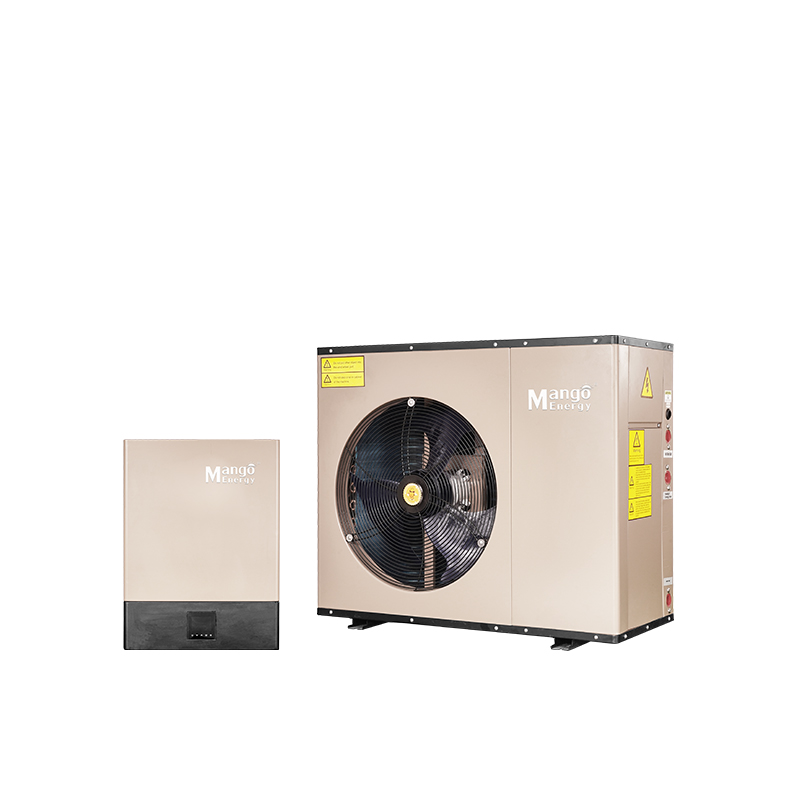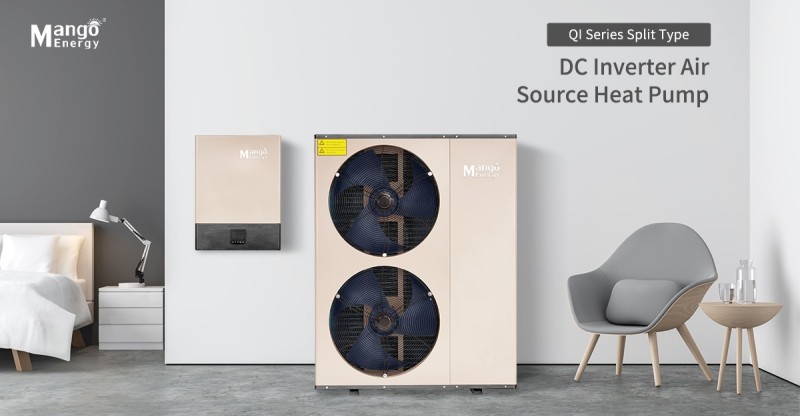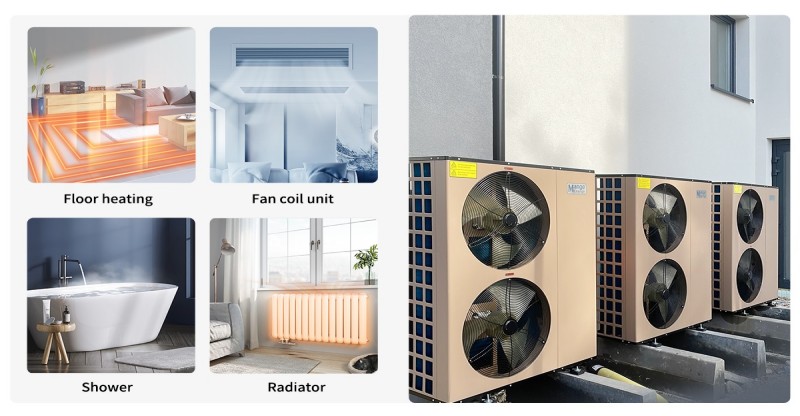
As climate change becomes an increasingly urgent global concern, finding ways to reduce energy consumption and minimize environmental impact has never been more important. For homeowners and businesses looking to improve their carbon footprint, DC inverter air source heat pumps provide a powerful and eco-friendly solution. By harnessing advanced technology and energy-efficient principles, these systems can significantly reduce both energy use and harmful emissions. This article explores how DC inverter air source heat pumps contribute to carbon footprint reduction while providing reliable and sustainable heating solutions.

What Makes DC Inverter Air Source Heat Pumps Special?
DC inverter air source heat pumps are more than just heating systems—they are advanced devices designed to deliver energy-efficient comfort throughout the year. These systems work by transferring heat from the outside air to the indoors for heating purposes. The DC inverter technology is what sets these pumps apart from traditional models. Unlike conventional heat pumps that operate at a fixed speed, DC inverter technology allows the compressor to adjust its speed based on real-time demand. This leads to better performance and lower energy consumption. Thanks to this continuous adjustment, DC inverter air source heat pumps maintain a consistent temperature without the need to constantly start and stop, which is more energy-efficient and reduces waste.
Energy Efficiency: A Key Factor in Carbon Footprint Reduction
One of the primary reasons why DC inverter air source heat pumps are so effective in reducing carbon footprints is their outstanding energy efficiency. Traditional heating systems, such as electric heaters or gas boilers, are often inefficient and consume more energy than necessary. In contrast, DC inverter heat pumps use less energy by adjusting their output based on current heating or cooling needs. For example, when the temperature inside a home or building is close to the desired level, the system will reduce its output rather than operating at full capacity. This method ensures that only the necessary amount of energy is used, minimizing electricity consumption. Over time, this translates to lower energy bills and less demand on power plants, which leads to a decrease in overall carbon emissions.

Reduced Carbon Emissions with Sustainable Heating
The impact of DC inverter air source heat pumps on carbon emissions cannot be overstated. Unlike traditional gas-powered heating systems that burn fossil fuels, DC inverter heat pumps do not produce carbon emissions during operation. Instead, they use electricity to transfer heat from the air, making them a much cleaner option. Even when powered by grid electricity, these heat pumps contribute to lower emissions compared to conventional heating methods. Additionally, when combined with renewable energy sources such as solar or wind power, the carbon footprint of the system is reduced even further, making it a truly sustainable solution.
Longevity and Durability: Further Environmental Benefits
Another key feature of DC inverter air source heat pumps is their longevity. These systems are built to last for many years, which reduces the need for frequent replacements. By opting for a system that can serve for decades, homeowners and businesses contribute to waste reduction and resource conservation. Moreover, many DC inverter heat pumps are designed with recyclable components, ensuring that end-of-life disposal has minimal environmental impact. This longer lifespan, coupled with recyclable materials, further decreases the carbon footprint associated with manufacturing, transporting, and disposing of the system.
Compatibility with Renewable Energy Sources
An important benefit of DC inverter air source heat pumps is their compatibility with renewable energy sources. For example, pairing these heat pumps with solar panels allows homes and businesses to run the system off solar energy, thus eliminating reliance on non-renewable energy sources. By integrating renewable energy with DC inverter heat pumps, users can drastically reduce their carbon footprint, making the system not only energy-efficient but also a key player in transitioning toward a greener, more sustainable future.

How Businesses Can Benefit from DC Inverter Air Source Heat Pumps
For businesses looking to improve their sustainability practices, DC inverter heat pumps offer an excellent opportunity to enhance energy efficiency while reducing operational costs. These systems provide reliable, scalable heating and cooling, which is particularly beneficial for commercial spaces that require consistent temperature control. By investing in DC inverter air source heat pumps, businesses can align with environmental goals, appeal to eco-conscious customers, and benefit from long-term savings on energy costs.
Conclusion: A Smart, Sustainable Choice
In an era where sustainability and reducing carbon footprints are top priorities, DC inverter air source heat pumps offer a practical, effective solution. These advanced systems provide energy-efficient heating, reduced carbon emissions, and a longer-lasting, eco-friendly option for homes and businesses. Their ability to adjust based on demand ensures that energy is used efficiently, helping users cut down on waste and save money over time.
For those looking to make a positive environmental impact, transitioning to a DC inverter air source heat pump is a smart, forward-thinking decision. Whether you're a homeowner or a business owner, adopting this technology not only benefits your bottom line but also contributes to a cleaner, greener future.


